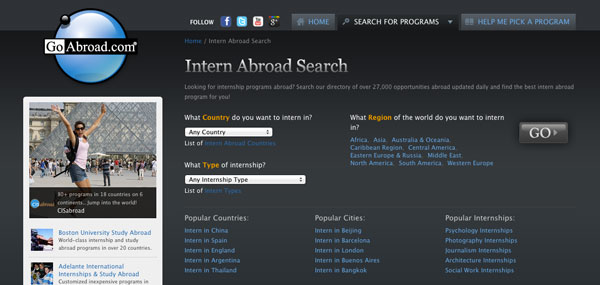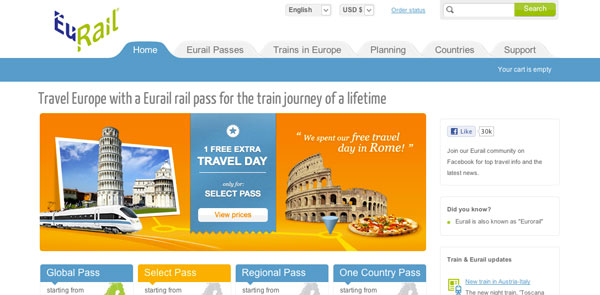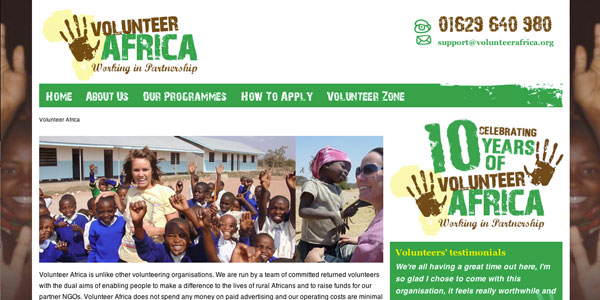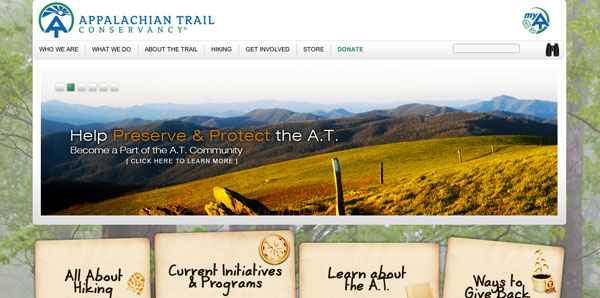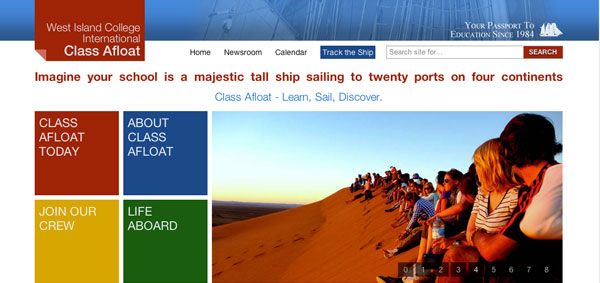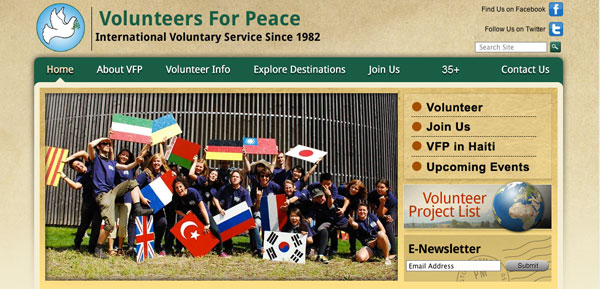Today was an odd day.
I have work to do (a class to design, one that requires prep and some background building for me), and I didn't want to do it SO MUCH that I cleaned two bathrooms, made cookies, weeded the garden and handled some chicken hygiene instead (trust me when I tell you that whatever you are imagining, it was much, much worse).
And STILL there were many, many hours to fill with avoidance.
So I made breakfast for The Child and her friend, as well as lunch and dinner (The Child must think it is heaven; this rarely happens. Dinner, yes, generally, but three meals retrieved for her? In one day? Hardly ever.). This is the extent of my avoidance.
I also folded two loads of laundry. And put them away.
This is the extent of my avoidance.
I love my school, and I love what I do, but this speaks to the very deep need for something of a break. There are tasks I must complete in order to be prepared for next week, but I am going to be a little gentle with myself and allow myself a break, to avoid work a little, put some things off, maybe be less productive. Next year promises to be even more challenging than this one, with several students online only, several coming to HoneyFern regularly, and three AP classes off-site. I am going for 501(c)3 status, getting audited (at my own request; for continuing accreditation) and taking several professional development classes for the fall. I need to rejuvenate and take some time to clear my head before I move forward.
So every morning I am going to linger over coffee, pick blackberries and eat them with raw sugar, dawdle over my favorite cooking blogs and check in with my Tweeps, then maybe get started. I would like to have a little bit of summer every day, and I am sure The Child would like that, too.
Off to catch some fireflies....
Issues in education, plus reflections on raising incredible kids! Progressive and project-based, HoneyFern is a passionate advocate of student voice and choice.
Tuesday, May 29, 2012
Thursday, May 24, 2012
Resource Friday...er...Thursday
So today is our last "academic" day, the day where we tie up loose ends before spending our official last day at the Georgia Aquarium (dolphin show, here we come!!). Because we will be "out of the office," and because I have been so lax in blogging, I am posting "Resource Friday" today.
This week has been a flurry of curriculum-seeking activity as I prepare to teach a six-week course in chemistry to an ELL. How do you get an understanding of chemistry that is intriguing and throrough without simply memorizing? And in six weeks?
You start by making a cheeseburger, of course.
Visit this link and type in "Cheeseburger Chemistry" for six short videos on six parts of the cheeseburger; concepts include states of matter, fermentation, physical/chemical change and more. A great intro to how chemistry is used in real life.
Great article on making homemade mayonnaise that hammers home the concept of solutions v. emulsions, too. I think we will take this whole series and make lunch, starting with pickles the first week (they need some time to ferment!).
Another great chemistry resource is The Periodic Table of Videos from the University of Nottingham (yes, where Robin Hood is from!!). Each element has a short video that features some sort of chemical reaction (lots of explosions) and an interesting explanation of what each element is for. The presenters are pleasantly British and universally good-humoured (note the British spelling for authenticity).
Along those same lines, these periodic tables in words and pictures have each element, where they are found in the world and a description; families are color-coded. No atomic numbers, but this is a great way to show the relevance of the periodic table (I am always seeking to answer the inevitable question, "Why do we have to know this?") and a good starting point for the non-science-minded student of any age.
The Innovative Educator has an awesome blog this week that profiles a school with a remarkably similar framework to HoneyFern. Nice to have company in the endeavor, even if only through cyberspace!
And finally, on a personal note, here is what we are doing on this long weekend to start off summer - making peach butter! I can't think of anything I would enjoy more than to capture the taste of summer in a jar. Nothing like opening the seal on sunshine in the middle of the winter.
Have a great weekend!
This week has been a flurry of curriculum-seeking activity as I prepare to teach a six-week course in chemistry to an ELL. How do you get an understanding of chemistry that is intriguing and throrough without simply memorizing? And in six weeks?
You start by making a cheeseburger, of course.
Visit this link and type in "Cheeseburger Chemistry" for six short videos on six parts of the cheeseburger; concepts include states of matter, fermentation, physical/chemical change and more. A great intro to how chemistry is used in real life.
Great article on making homemade mayonnaise that hammers home the concept of solutions v. emulsions, too. I think we will take this whole series and make lunch, starting with pickles the first week (they need some time to ferment!).
Another great chemistry resource is The Periodic Table of Videos from the University of Nottingham (yes, where Robin Hood is from!!). Each element has a short video that features some sort of chemical reaction (lots of explosions) and an interesting explanation of what each element is for. The presenters are pleasantly British and universally good-humoured (note the British spelling for authenticity).
Along those same lines, these periodic tables in words and pictures have each element, where they are found in the world and a description; families are color-coded. No atomic numbers, but this is a great way to show the relevance of the periodic table (I am always seeking to answer the inevitable question, "Why do we have to know this?") and a good starting point for the non-science-minded student of any age.
The Innovative Educator has an awesome blog this week that profiles a school with a remarkably similar framework to HoneyFern. Nice to have company in the endeavor, even if only through cyberspace!
And finally, on a personal note, here is what we are doing on this long weekend to start off summer - making peach butter! I can't think of anything I would enjoy more than to capture the taste of summer in a jar. Nothing like opening the seal on sunshine in the middle of the winter.
Have a great weekend!
Monday, May 21, 2012
Stretching Minds Through Experience
Our last day of school is on Friday, and, as usual, I get reflective at the end of the year. This has been a crazy ride, our second year, full of ups and downs, with some spectacular experiences and some truly great people, but what sticks out for me the most this year is our field experiences. In 180 days, we were out in the world, learning, for 42 days.
Here is a bit of what we did:
Plays:
Much Ado About Nothing
Taming of the Shrew
Macbeth
A Christmas Carol
Don Giovanni (ok, an opera, but still)
(Mad love goes to The Shakespeare Tavern, not just for their brilliant work but also for the behind-the-scenes tour and Q&A after Macbeth. What an incredible experience that made each play so much richer!)
Museums:
Fernbank (Darwin exhibit and Imax film, Galapagos)
Bodies Atlanta (just...wow. GO.)
Georgia Aquarium (our final trip of the year on the last day)
Overnight: Tybee Island Burton 4-H Camp (So. Much. Fun.)
Other:
Yellow Daisy Festival
Geocaching - four expeditions!
Stream Monitoring - monthly, all year
Food Pantry - 2x/month at Hollydale United Methodist Church
It is hard to believe how far we have come this year, and next year seems like we will be out in the world just as much! Looking ahead, I see a the high ropes course at Wahsega (or maybe the Flying Squirrel - who knows?), more plays at The Shakespeare Tavern, La Traviata at Cobb Energy Center, Tellus Museum, Booth Western Museum, and the High Museum. One student is planning on building a tiny house; another wants to design and build a chicken coop. We are delving into Spanish literature and the second year of French.
A mind stretched by a new experience can never go back to its old dimensions.
Oliver Wendell Holmes, Jr.
Here's to stretching minds!
Here is a bit of what we did:
Plays:
Much Ado About Nothing
Taming of the Shrew
Macbeth
A Christmas Carol
Don Giovanni (ok, an opera, but still)
(Mad love goes to The Shakespeare Tavern, not just for their brilliant work but also for the behind-the-scenes tour and Q&A after Macbeth. What an incredible experience that made each play so much richer!)
Museums:
Fernbank (Darwin exhibit and Imax film, Galapagos)
Bodies Atlanta (just...wow. GO.)
Georgia Aquarium (our final trip of the year on the last day)
Overnight: Tybee Island Burton 4-H Camp (So. Much. Fun.)
Other:
Yellow Daisy Festival
Geocaching - four expeditions!
Stream Monitoring - monthly, all year
Food Pantry - 2x/month at Hollydale United Methodist Church
It is hard to believe how far we have come this year, and next year seems like we will be out in the world just as much! Looking ahead, I see a the high ropes course at Wahsega (or maybe the Flying Squirrel - who knows?), more plays at The Shakespeare Tavern, La Traviata at Cobb Energy Center, Tellus Museum, Booth Western Museum, and the High Museum. One student is planning on building a tiny house; another wants to design and build a chicken coop. We are delving into Spanish literature and the second year of French.
A mind stretched by a new experience can never go back to its old dimensions.
Oliver Wendell Holmes, Jr.
Here's to stretching minds!
Wednesday, May 16, 2012
A Modest Proposal - Or Not
How about this to truly reform education: make it optional after 8th grade.
Kids who require licenses to work (doctors, teachers, lawyers) continue through high school and go to college. More on that below. Let's start with the kids who do not need a license.
Kids who do not stay in school start apprenticeships in their field after 8th grade. If they don't have a clue as to what they'd like to do, they rotate through several different 6-month placements of their choosing. Some of these may require additional training or "homework," so all of the teachers who are no longer working can become tutor/mentors.
Schools become community centers where people can come to learn, both adults and kids. Schools offer classes based on the needs of their immediate community (a truly neighborhood school), but people can take classes at any location.
Eliminate mandatory school taxes except for those students who continue through high school. The nighborhood schools are funded by state dollars (partially, with no strings) and the community (which pays an annual membership to use the school, something modest that can be worked off by teaching a class or offering other services to the school, like janitorial or administrative services).
Should a student decide after "dropping out" in 8th grade that they would like to continue on a degree track, they can opt back in after demonstrating their commitment and the commitment of the parents to the "re-schooling."
High school itself will be reformed to include design, hands-on application and portfolios. There will be no mandatory standardized testing, and schedules will be flexible to allow for student work schedules and transportation (students provide their own transportation). Graduation will be based not on grades and GPA but on demonstrated understanding of vital concepts for whichever licensed field the student has chosen, with representatives from selected colleges on hand for final evaluations throughout the senior year, making recommendations for work that needs to be completed prior to graduation. Each student will be paired with a mentor and will stay with that mentor for all four years.
Let's make some real change. Let's educate all people where they are and completely eliminate the still-prevalent one-sze-fits-all mentality. Let's stop with the wrangling about money, length/amount of school days and curriculum reform. If we can't teach the entire population of this country vital social norms as well as basic skills like reading, math and writing in nine years of school, then we have other fish to fry; assuming we can, let's re-think mandatory schooling and step into the real world.
Kids who require licenses to work (doctors, teachers, lawyers) continue through high school and go to college. More on that below. Let's start with the kids who do not need a license.
Kids who do not stay in school start apprenticeships in their field after 8th grade. If they don't have a clue as to what they'd like to do, they rotate through several different 6-month placements of their choosing. Some of these may require additional training or "homework," so all of the teachers who are no longer working can become tutor/mentors.
Schools become community centers where people can come to learn, both adults and kids. Schools offer classes based on the needs of their immediate community (a truly neighborhood school), but people can take classes at any location.
Eliminate mandatory school taxes except for those students who continue through high school. The nighborhood schools are funded by state dollars (partially, with no strings) and the community (which pays an annual membership to use the school, something modest that can be worked off by teaching a class or offering other services to the school, like janitorial or administrative services).
Should a student decide after "dropping out" in 8th grade that they would like to continue on a degree track, they can opt back in after demonstrating their commitment and the commitment of the parents to the "re-schooling."
High school itself will be reformed to include design, hands-on application and portfolios. There will be no mandatory standardized testing, and schedules will be flexible to allow for student work schedules and transportation (students provide their own transportation). Graduation will be based not on grades and GPA but on demonstrated understanding of vital concepts for whichever licensed field the student has chosen, with representatives from selected colleges on hand for final evaluations throughout the senior year, making recommendations for work that needs to be completed prior to graduation. Each student will be paired with a mentor and will stay with that mentor for all four years.
Let's make some real change. Let's educate all people where they are and completely eliminate the still-prevalent one-sze-fits-all mentality. Let's stop with the wrangling about money, length/amount of school days and curriculum reform. If we can't teach the entire population of this country vital social norms as well as basic skills like reading, math and writing in nine years of school, then we have other fish to fry; assuming we can, let's re-think mandatory schooling and step into the real world.
Monday, May 14, 2012
One Bad Mother
I spent last night cleaning up vomit, all the way into the wee hours. The Child has something double-plus ungood, and although we have not yet identified it, the upshot is that she feels wretched. I am on my 4th load of laundry, and the house smells not-so-faintly of puke. I am pretty sure that is the first time our dog has been thrown up on (the irony was not lost on me, even as I was scrubbing the carpet, that she threw up on the dog. Pretty funny.).
I had plenty of time for contemplation last night, and I thought about what it means to be a "good mother." It has nothing to do with being fun, being financially generous or being strict. It has nothing to do with keeping the house clean or doing certain things at certain times (e.g., the Family Picture). Everyone, at some point or another, is those things or does those things. For me, being a "good mother" is putting yourself aside when your child really needs you. It is, messily enough, holding the bucket, scrubbing the carpet and washing the dog at midnight. It is reassuring her, after she apologizes for "ruining" my Mother's Day, that THIS is what makes me her mom. It is realizing that we only have our children for a short period of time and, when the rubber meets the road, understanding that the short period of time isn't guaranteed.
Motherhood was not my calling, but The Child is. She makes me realize what matters every day, and for that I am grateful. So the day after Mother's Day I salute my sweet, sick baby and honor the ways she makes me a better person.
Je t'aime, mon petit chou fleur!
I had plenty of time for contemplation last night, and I thought about what it means to be a "good mother." It has nothing to do with being fun, being financially generous or being strict. It has nothing to do with keeping the house clean or doing certain things at certain times (e.g., the Family Picture). Everyone, at some point or another, is those things or does those things. For me, being a "good mother" is putting yourself aside when your child really needs you. It is, messily enough, holding the bucket, scrubbing the carpet and washing the dog at midnight. It is reassuring her, after she apologizes for "ruining" my Mother's Day, that THIS is what makes me her mom. It is realizing that we only have our children for a short period of time and, when the rubber meets the road, understanding that the short period of time isn't guaranteed.
Motherhood was not my calling, but The Child is. She makes me realize what matters every day, and for that I am grateful. So the day after Mother's Day I salute my sweet, sick baby and honor the ways she makes me a better person.
Je t'aime, mon petit chou fleur!
Sunday, May 13, 2012
Happy Mother's Day!
Happy Mother's Day to all of the mothers out there who inspire their kids to follow their dreams.
Have a beautiful day!
Thursday, May 10, 2012
50 Inspiring Gap Year Ideas
HoneyFern Note: Today's guest blog is brought to you by Carol Brown, Site Administrator and educator for Online College.org.
50 Inspiring Gap Year Ideas for High School Students
Gap years have long been a common occurrence for students in Europe and Australia but are just now catching on in the U.S. Some students use them as a chance to gain work experience, some want to see the world, and others just want to feel a little more ready to head to college. Whatever the reason behind choosing a gap year, there are numerous possibilities for customizing the experience to your own unique needs and interests. Here, we share just a few inspiring ideas for trips and experiences that you're sure to remember for years to come.
WORK
If you'd like to gain valuable work experience during your gap year, consider these ideas.
- Teach in South America. Want to mix an adventure in the wilds of South America with some teaching experience? Head to Ecuador to help young children learn English and gain academic skills while enjoying some jungle treks, mountain biking, and white-water rafting.
- WWOOF your way around the world. If you need a way to fund your gap year, consider WWOOFing it. Not sure what that it is? It's a group called World Wide Opportunities on Organic Farms that can help young high school grads work as they travel by offering work on farms around the world.
- Take on an internship in another country. There are numerous programs that can help you find internships abroad, letting you gain experience while living and working in a new and exciting location.
- Help people with small tasks. Another way to help fund a gap is by taking on jobs found through HelpX, a site that matches up those who need help with smaller tasks like building, farming, and even sailing with those who need free accommodation and food.
- Help out with the family business. If you think you might want to go into the family business, take a gap year to work, getting to know the ropes. You might find a major that will suit your career in the business, or learn that it's just not for you.
- Work on a farm or ranch. City types can expand their horizons during a gap year by heading out to the country to get experience working on a farm or ranch. Get a bit more adventurous by heading to a farm overseas.
- Start your own business. Always dreamed of being an entrepreneur? Use your gap year to pull together a business plan, inspired by your travels, internships, or great ideas you've always wanted to try.
- Teach English somewhere far-flung. Head to Asia, South America, or the Middle East to see what life is like on the other side of the world and gain some valuable work experience in the process.
- Become an au pair. Being an au pair can be a truly wonderful way to experience a bit of the world while working. You'll get to live with a local family, learn the language, and taste all aspects of the culture.
- Work on an oil rig. While it might not be for everyone, working in an extreme situation, like on an oil rig, can be an amazing life experience that will more than prepare you for the challenges of college.
TRAVEL
Many people want to spend their gap years traveling as much as possible. These are just a few ideas for some seriously amazing trips.
- Take a train ride though Europe. Europe is perhaps one of the easiest places to get around by train. Buy a Eurorail pass and you can travel to 23 different countries.
- Backpack through Asia. Find a friend, grab a backpack, and trek through the beautiful mountains, coasts, and cities of Southeast Asia. If you don't find backpacking fun, you can always take a more traditional trip as well.
- Take a safari. Love wildlife? A safari is a great way to get up close and personal with many animals you've only seen in zoos.
- Hop on the Trans-Siberian Railway. An overland trip, like one offered by the Trans-Siberian Railway, is a great way to see a country. The thousands of miles of this railroad stretch through China, Mongolia, Manchuria, Russia, and North Korea.
- Take an extended road trip. America is a big, big country and chances are pretty good that even if you're well-traveled you haven't seen even a fraction of what it has to offer. A long road trip (in a reliable car) with some friends can help you to see some of the sights you've been missing.
- Become a global foodie. If you've ever seen the show No Reservations then you know that half the fun of visiting new places can be tasting the local cuisine. If you're a lover of fine foods, why not make that a focus of your travels?
- See great works of art. No matter where you travel in the world, there are bound to be museums and monuments where you can see some of the most iconic and beautiful works ever created, a real education for any budding art historian or artist.
- Visit all the national parks. There are 58 national parks in the United States, making it possible for the determined traveler to hit nearly all of them in a year.
- Drive a camper through Australia. The Australian outback, as barren and open as it is, has a mysterious sort of appeal. Rent a camper to explore this huge country down under, outback, cities, and coasts alike, during your gap year.
VOLUNTEER
Give your gap year a deeper meaning by helping others. Find some great ideas for a variety of volunteering trips here.
- Help wildlife in Borneo. Borneo is a popular place to volunteer, largely because of the wildlife. You can work at centers that help rehabilitate orangutans, monkeys, and even some unique species of birds.
- Volunteer in your community. While it can be exciting to volunteer abroad, it's likely that there are plenty of organizations closer to home that could use your help as well. If you're not sure where to start, consider an online network like VolunteerMatch.
- Help rebuild America. The National Civilian Community Corps or AmeriCorps is a great place to learn leadership skills while helping communities in need.
- Volunteer for community projects in Africa. Whether you teach school, help bring water to villages, build homes, or something else entirely, a trip to Africa can help you see the world while helping others.
- Work to save an endangered species. Both within the U.S. and in a variety of places around the globe people are working tirelessly to help rebuild and protect populations of seriously endangered species. You can help the effort by volunteering your time.
- Become part of a conservation effort. Check out opportunities offered by the Student Conservation Association to use your time off to help save trees, national parks, and American wildlife.
- Join City Year. Give a year of your life to this organization, focused on helping keep kids interested, engaged, and excelling in school.
ADVENTURES
Give yourself the experience of a lifetime with these gap year ideas.
- Go on an expedition to Antarctica. If you're the adventurous type (and don't mind some chilly temps) a trip to the bottom of the world could be a pretty cool (pun intended) way to spend a few months out of your gap year.
- Walk the Appalachian Trail. Stretching from Maine to Georgia, this popular and well-worn trail will test your mettle as you navigate your way through the mountains, valleys, and forests of the eastern United States.
- See the Seven Wonders of the World. While you'll only be able to see one of the ancient wonders, you can still take in the modern wonders, or embrace the natural wonders, all of which can be equally awe-inspiring.
- Become a sailor on a tall ship. Becoming a sailor on a tall ship is one way to embrace your love of the sea, while seeing ports in the U.S. and around the world to boot.
- Run away with the circus. As silly as it might sound, if you have a skill or talent that might be valuable to a circus, traveling from town to town with one really could be a life-changing experience.
LEARNING
Get an education while you see the world when you try out these ideas.
- Learn a language in a foreign country. These days, knowing another language can be a huge asset to your career and there's no better way to do it than with complete immersion. Head to France to learn French or China to learn Chinese for an incredibly valuable and educational gap year.
- Learn how to do something new. Just because you're not in college doesn't mean you can't take classes. Use your gap year, wherever you choose to spend it, taking classes in art, cooking, dance, or whatever else interests you but isn't applicable to your future career.
- Explore the ruins of an ancient culture. One of the most awe-inspiring experiences you can have learning about history is by seeing the ruins left behind by an ancient culture. Head to Peru, Egypt, Greece, China, or dozens of other history-filled destinations for a thoroughly educational and inspiring experience.
- Take an extended sailing trip. There are a number of different companies that offer classes on a ship, so you can learn while sailing to and exploring the world's most amazing port cities.
- Make a documentary. If the idea of making a documentary during your gap year excites you, consider signing up for the Brown Ledge program that trains students on documentary technologies and works to explore different cities in the U.S. using them.
- Study a foreign culture. Don't be an armchair anthropologist! Get out there and do research in the real world, studying people, places, and cultures around the world while you're taking time off from school. You may eventually be able to adapt your research into a stellar final thesis. If you can't afford to go away, you can also study people in your hometown.
- Research in the Galapagos. For many, spending six months to a year in the Galapagos doing research and working with conservationists sounds like a dream come true. If it appeals to you, contact the Darwin Foundation and you could just be spending your gap year in these amazing isles.
SPORT
Athletic types will love these ideas for amazing gap years.
- Train for an athletic event. If you've always dreamed of taking part in an Ironman or maybe even heading to the Olympics, a gap year can be the perfect time to train and get in the best shape of your life. Even better, you can earn money while training others in the sport of your choice.
- Bike through a country. Travel can also be a serious workout if you explore by bike. Pack up your wheels and head abroad to see the world by your own power.
- Surf the world's best beaches. Aquatic types can spend their gap year catching waves at some of the world's best surf spots.
- Pick up a new sport and practice like crazy. Always wanted to be a skater? Feel the need to be able to shoot a bow? Your gap year offers ample time to build these skills.
- Ski your way through your gap year. There is plentiful skiing the world over, and for dedicated skiers, a gap year may be a once-in-a-lifetime chance to hit the slopes in places like Canada, Switzerland, Chile, and even China. You can even get training to become a ski or snowboard instructor, a skill that you can use to earn money while in college, too.
GROWING
Use these ideas to make your gap year a deeply spiritual and moving experience you'll never forget.
- Go on a pilgrimage. One of the most famous pilgrimage routes is the Camino de Santiago, which thousands of pilgrims, some religious, some not, still walk or bike each year. You can follow this route or one of the dozens of other pilgrimage routes around the world for a purpose-driven and empowering way to spend your gap year.
- Go on a yoga or meditation retreat. Whether you choose to stay close to home or travel halfway around the world, a retreat of this nature can help you build focus, find your purpose, and calm your mind.
- Fulfill as many lifelong dreams as possible. You likely won't have a time in your life when you're as free, healthy, and fearless as you are during your gap year, so make the most of it by fulfilling some of your life dreams. Some may be big, like seeing the pyramids, and some may be small, like swimming at night, but whatever they are, go for them!
- Head to a kibbutz. Learn to work in a communal setting by taking part in a kibbutz in rural Israel. Before you start, you may even have time to see some of the country's most holy sites.
- Help promote peace. Get in touch with an organization like Volunteers for Peace to find out how you can spend your gap year helping to promote peace in locations around the world.
- Take a spiritual journey through India. India has long been the destination for those in search of spiritual answers. Whether you find a guru or simply take in the sights and sounds of this diverse and fascinating country, you're bound to learn more about yourself in the process.
- Visit the world's holy sites. No matter your faith, visiting some of the world's most famous holy sites is a deeply moving experience that may just help you find guidance and inspiration for your future.
Thursday, May 3, 2012
Educating Factory Workers, Circa 2012
Public education was created in America to educate factory workers to a minimum standard; as the Industrial Revolution swept across the country, pushing rural families into cities to find work, factory owners found that people couldn't follow basic instructions to work in a factory or on an assembly line. Thus, the birth of public education for all.
American education hasn't changed much since then, even as the Industrial Revolution has given way to the Technological Revolution. Robots do most of the assembly now, so what is needed are skilled, educated innovators, the kind of learner that is not being cultivated in public school.
So what are schools doing? Changing the way they teach? Encouraging creativity, collaboration, problem-solving, critical thinking (coincidentally, all of the skills that the Chinese are now encouraging in their schools)?
Nope.
Last night we watched the ABC Nightly News series "Bringing America Back." If you are not familiar, it is a series of reports that asks Americans what they are doing to support manufacturing and small business in America; families have committed to buying only American-made products and services.
Last night featured a small town in New York; Malta lobbied hard for a large company to bring its factory to their town, and won. As part of their commitment to the factory, the seventeen high schools in Malta promised to aim their programs at educating factory workers, stepping backwards into the early 20th century.
Don't get me wrong: people need to work, and this factory will employ 1,600 by the end of the year.
I find it ironic, though, that we are back to educating factory workers. Many of the jobs in the factory will be done by robots, but workers are needed to monitor and clean equipment, as well as perform other specific functions. There is not much in the way of innovation or creativity, but it is steady, stable (hopefully) employment. Which is good, as these small towns that court large factories are putting all of their educational eggs in one basket.
Detroit, anyone? Pittsburgh? What happens when the factory leaves? What happens to the employees who were trained specifically for one job and lack the broader skills necessary to move to another industry or field (problem-solving, collaboration, etc)?
This will be an interesting story to follow, one that will play out over several years. I have said before that we continue to educate factory workers, and now we are bringing factories back to employ our factory workers. Cogs in the wheel. This is a massive step backwards, even as it is positive in the short term.
I hope I am wrong.
American education hasn't changed much since then, even as the Industrial Revolution has given way to the Technological Revolution. Robots do most of the assembly now, so what is needed are skilled, educated innovators, the kind of learner that is not being cultivated in public school.
So what are schools doing? Changing the way they teach? Encouraging creativity, collaboration, problem-solving, critical thinking (coincidentally, all of the skills that the Chinese are now encouraging in their schools)?
Nope.
Last night we watched the ABC Nightly News series "Bringing America Back." If you are not familiar, it is a series of reports that asks Americans what they are doing to support manufacturing and small business in America; families have committed to buying only American-made products and services.
Last night featured a small town in New York; Malta lobbied hard for a large company to bring its factory to their town, and won. As part of their commitment to the factory, the seventeen high schools in Malta promised to aim their programs at educating factory workers, stepping backwards into the early 20th century.
Don't get me wrong: people need to work, and this factory will employ 1,600 by the end of the year.
I find it ironic, though, that we are back to educating factory workers. Many of the jobs in the factory will be done by robots, but workers are needed to monitor and clean equipment, as well as perform other specific functions. There is not much in the way of innovation or creativity, but it is steady, stable (hopefully) employment. Which is good, as these small towns that court large factories are putting all of their educational eggs in one basket.
Detroit, anyone? Pittsburgh? What happens when the factory leaves? What happens to the employees who were trained specifically for one job and lack the broader skills necessary to move to another industry or field (problem-solving, collaboration, etc)?
This will be an interesting story to follow, one that will play out over several years. I have said before that we continue to educate factory workers, and now we are bringing factories back to employ our factory workers. Cogs in the wheel. This is a massive step backwards, even as it is positive in the short term.
I hope I am wrong.
Wednesday, May 2, 2012
Imagine the Possibilities
Imagine what kids could do if you let them take the reins.
Two answers.
A sixth grader who designs apps.
Caine and his cardboard arcade.
Thomas stayed inside and and built something concrete with numbers.
They shared their creations with the world.
These kids are an example of the possibilities that exist when you remove preconceived notions about what it means to learn. How far will you let your kids go?
Two answers.
A sixth grader who designs apps.
Caine and his cardboard arcade.
What do they have in common? Other than the fact that they are boys?
They had time and space to create, one with technology and one with his hands.
They had adults who said, "Yes," instead of "No."
They had adults who didn't give them the answers.
Caine went outside and built something concrete with his hands.
They shared their creations with the world.
These kids are an example of the possibilities that exist when you remove preconceived notions about what it means to learn. How far will you let your kids go?
Tuesday, May 1, 2012
Tybee Island Field Experience
Last week HoneyFern journeyed to Tybee Island, GA for a 3-day field experience.
Wow.
First of all, mad love to the Burton 4-H Center and their fabulous teaching staff. The teachers are truly what made the trip. David Weber was instrumental in coordinating this trip for our small group, and the teachers - underpaid, enthusiastic, passionate and highly educated themselves - adjusted their teaching to us. We are a small, very vocal group that asks lots of questions, and they let the classes go the way they went while still managing to keep up with us.
The view from our camp; on the first morning we woke up early and found dolphins playing in the water by the dock.
We learned navigation by compass and GPS; a sure way to tell if you are off-track for the scavenger hunt is when you end up in the wetlands.
We helped monitor the changes in beach structure by conducting slope surveys with JoHawk, one of our favorite teachers.
We found two horseshoe crab shells; George made it home with Devin and Debra, but the larger, more recent skeleton stayed on Tybee. He was quite smelly.
It was a toss-up between our Nightwalk (spotting Venus, Betelgeuse and Jupiter, along with the general utter peace of the sea at night) and Surf Sleuth for our favorite classes. Weather for Surf Sleuth was BRUTAL. Sunny, cold and windy. Getting in was not the problem.
Getting out, with the wind and the sand, was interesting, to say the least.
We walked 178 steps to the top of the Tybee lighthouse on our final day...
...and said goodbye to the island.
Tonight HoneyFern gets fancy and goes to the opera: Don Giovanni!
Wow.
First of all, mad love to the Burton 4-H Center and their fabulous teaching staff. The teachers are truly what made the trip. David Weber was instrumental in coordinating this trip for our small group, and the teachers - underpaid, enthusiastic, passionate and highly educated themselves - adjusted their teaching to us. We are a small, very vocal group that asks lots of questions, and they let the classes go the way they went while still managing to keep up with us.
The view from our camp; on the first morning we woke up early and found dolphins playing in the water by the dock.
We learned navigation by compass and GPS; a sure way to tell if you are off-track for the scavenger hunt is when you end up in the wetlands.
We helped monitor the changes in beach structure by conducting slope surveys with JoHawk, one of our favorite teachers.
We found two horseshoe crab shells; George made it home with Devin and Debra, but the larger, more recent skeleton stayed on Tybee. He was quite smelly.
It was a toss-up between our Nightwalk (spotting Venus, Betelgeuse and Jupiter, along with the general utter peace of the sea at night) and Surf Sleuth for our favorite classes. Weather for Surf Sleuth was BRUTAL. Sunny, cold and windy. Getting in was not the problem.
Getting out, with the wind and the sand, was interesting, to say the least.
We walked 178 steps to the top of the Tybee lighthouse on our final day...
...and said goodbye to the island.
Tonight HoneyFern gets fancy and goes to the opera: Don Giovanni!
Subscribe to:
Comments (Atom)
